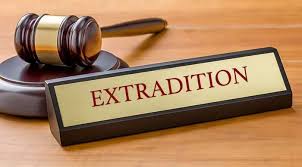How to Choose the Right Lawyer for Your Legal Needs

Finding the Right Lawyer: A Comprehensive Guide
Choosing a lawyer can be one of the most crucial decisions you make, especially when it comes to legal matters that impact your life. Whether you’re facing a personal injury case, a family dispute, or a business-related legal issue, having the right attorney by your side can make all the difference. In this article, we will explore various strategies and finding the right lawyer tips for hiring legal counsel that will help you navigate the process of selecting the best lawyer for your specific needs.
Understanding Your Legal Needs
The first step in finding the right lawyer is to clearly understand your legal issue. Different lawyers specialize in various fields of law, so it’s crucial to assess your situation accurately. Are you facing a criminal charge? Do you need assistance with a contract or a business dispute? Each legal issue may require a different expertise. Take the time to research and identify the type of lawyer you need. This clarity will make the search more targeted and efficient.
Researching Potential Lawyers
Once you know what type of lawyer you need, it’s time to start your research. Here are some effective methods for finding potential candidates:
- Online Directories: Utilize online legal directories that list attorneys by specialty. Websites like Avvo, FindLaw, or Martindale-Hubbell can provide a wealth of information.
- Referrals: Ask friends, family, or colleagues for recommendations. Personal testimonials can be incredibly insightful.
- Local Bar Association: Contact your local bar association for a list of lawyers in your area. They often offer referral services.
- Social Media and Forums: Join online legal forums or social media groups related to your issue. Here, you can ask for recommendations and share experiences.
Evaluating Lawyer Credentials

After compiling a list of potential lawyers, it is important to evaluate their credentials and background. Here are some key factors to consider:
- Experience: Check how many years the lawyer has been practicing law and their success rate in cases similar to yours.
- Specialization: Ensure that the lawyer specializes in the area of law relevant to your case. Some lawyers are generalists, while others focus on specific fields.
- Reputation: Look for reviews or testimonials from previous clients online. You can also check their standing with the state bar association.
- Consultation Fees: Many lawyers offer a free initial consultation. Use this opportunity to gauge their communication style, professionalism, and compatibility with you.
Scheduling Consultations
Once you narrow down your choices, schedule consultations with a few lawyers. This meeting is your opportunity to ask questions and see if you feel comfortable with their approach. Here are some questions you may want to ask during your consultations:
- What is your experience with cases like mine?
- What is your approach to handling my case?
- What are your fees, and how do you bill clients?
- How will you keep me updated on my case’s progress?
- What is your availability for communication?
Trust your instincts during these meetings. Feeling comfortable and understood by your lawyer is essential, as you will be sharing sensitive information regarding your legal matter.
Understanding Fees and Payment Structures
Lawyers use varying fee structures, including hourly rates, flat fees, contingency fees, or retainers. Understanding how a lawyer charges for their services is critical to avoid any surprises later. Be sure to ask about all potential costs involved; in addition to legal fees, there may be court fees or other expenses that arise during your case.

Assessing Compatibility
Compatibility with your lawyer is crucial for a fruitful attorney-client relationship. A good lawyer should be someone you feel comfortable discussing your case with, who listens to your concerns, and takes the time to explain complex legal concepts in a way that you can understand.
Additionally, consider their style and approach. Some lawyers are more aggressive, while others may favor a more conciliatory approach. Choose someone whose style aligns with your expectations and needs.
The Decision-Making Process
After meeting with potential lawyers, take the time to compare your experiences and the information you gathered. Here are some tips for making your final decision:
- Reflect on each lawyer’s strengths and weaknesses.
- Consider the level of comfort you felt during the consultations.
- Weigh the costs against the services offered.
- Trust your intuition; sometimes, your gut feeling can guide you to the right choice.
Final Thoughts
Finding the right lawyer can be a daunting task, but taking a systematic approach will ensure that you make an informed decision. Remember that your lawyer is your advocate and guide through a potentially complex legal landscape. By understanding your needs, conducting thorough research, asking the right questions, and assessing compatibility, you can find the legal counsel best suited to help you navigate your specific situation successfully. Empower yourself with knowledge and take control of your path to justice.